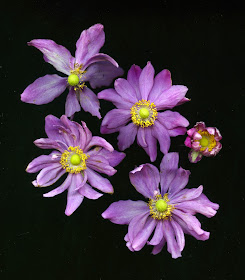A bout of insomnia
this Friday night (but now early Saturday morning ) has me at my computer
writing a blog about yesterday (Friday) and the flowers I found in the garden
so that I can post it today Saturday for Sunday’s blog tomorrow.
I did not know that I
have been pushing a self-propelled lawn mower (new last spring) for months not
knowing that the belt connecting the motor to the wheels had come off. When I
had to mow the long boulevard (it is at an incline) I was huffing and puffing
it. After a few minutes I would go inside and have a glass of orange juice and
waiting for my heart to slow down and for my lungs to fill with air. Today I
discovered the loose pulley and suddenly mowing the lawn (and using it as a
vacuum to suck up all the debris that came down in the windstorm a few days
ago) was not so much of a chore. But it still took me four hours so exhaustion
might be the reason for the insomnia.
Two plants showed off
today. One was the lowly (in some quarters but not in mine) Anemone hupihensis
which does flower in late summer. The other was a startling light yellow
English Rose called Rosa ‘Crocus Rose’. I
could not resist sniffing it. Sniffing a wonderfully fragrant rose at this time
of the year is a pleasure that rarely happens in my shady garden. Of the anemone
I did not think anybody of note might have written a poem about it. I was
wrong:
Emily Dickinson
(1830–86). Complete Poems. 1924.
Part Three: Love
XL
SUMMER for thee grant
I may be
When summer days are flown!
Thy music still when
whippoorwill
And oriole are done!
For thee to bloom, I’ll
skip the tomb 5
And sow my blossoms o’er!
Pray gather me,
Anemone,
Thy flower forevermore!
And of course I have
known for years that Jorge Luís Borges wrote a very short story featuring a yellow
rose (the English version follows the Spanish one):
 |
| Rosa Çrocus Rose' October 24 2014 |
Una Rosa
Amarilla
Por Jorge
Luis Borges
Ni aquella
tarde ni la otra murió el ilustre Giambattista Marino, que las bocas unánimes
de la Fama (para usar la imagen que le fue cara) proclamaron el nuevo Homero y
el nuevo Dante, pero el hecho inmóvil y silencioso que entonces ocurrió fue en
verdad el último de su vida. Colmado de años y de gloria, el hombre moría en un
vasto lecho español de columnas labradas. Nada cuesta imaginar a unos pasos un
sereno balcón que mira al poniente y, más abajo, mármoles y laureles y un
jardín que duplica sus graderías en una agua rectangular. Una mujer ha puesto
en una copa una rosa amarilla; el hombre murmura los versos inevitables que a
él mismo, para hablar con sinceridad, ya lo hastían un poco:
Púrpura del
jardín, pompa del prado, gema de primavera,
ojo de
abril…
Entonces
ocurrió la revelación. Marino vio la rosa, como Adán pudo verla en el Paraíso,
y sintió que ella estaba en su eternidad y no en sus palabras y que podemos
mencionar o aludir pero no expresar y que los altos y soberbios volúmenes que
formaban un ángulo de la sala una penumbra de oro no eran (como en vanidad
soñó) un espejo del mundo, sino una cosa más agregada al mundo.
Esta
iluminación alcanzó Marino en la víspera de su muerte, y Homero y Dante acaso
la alcanzaron también.
Borges,
Luis Jorge. El hacedor. Ed. Debolsillo. 1ra edición en México en agosto del
2012.
A Yellow Rose
J. L. Borges
Neither that afternoon
nor the next did the illustrious Giambattista Marino die, he whom the unanimous
mouths of Fame — to use an image dear to him — proclaimed as the new Homer and
the new Dante. But still, the noiseless fact that took place then was in
reality the last event of his life. Laden with years and with glory, he lay
dying in a huge Spanish bed with carved bedposts. It is not hard to imagine a
serene balcony a few steps away, facing the west, and, below, marble and
laurels and a garden whose various levels are duplicated in a rectangle of
water. A woman has placed in a goblet a yellow rose. The man murmurs the
inevitable lines that now, to tell the truth, bore even him a little:
Purple of the garden,
pomp of the meadow,
Gem of the spring,
April’s eye . . .
Then the revelation
occured: Marino saw the rose as Adam might have seen it in Paradise, and he
thought that the rose was to be found in its own eternity and not in his words;
and that we may mention or allude to a thing, but not express it; and that the
tall, proud volumes casting a golden shadow in a corner were not — as his
vanity had dreamed — a mirror of the world, but rather one thing more added to
the world.
Marino achieved this
illumination on the eve of his death, and Homer and Dante may have achieved it
as well.
[From Dreamtigers, by
Jorge Luis Borges, translated by Mildred Boyer]
